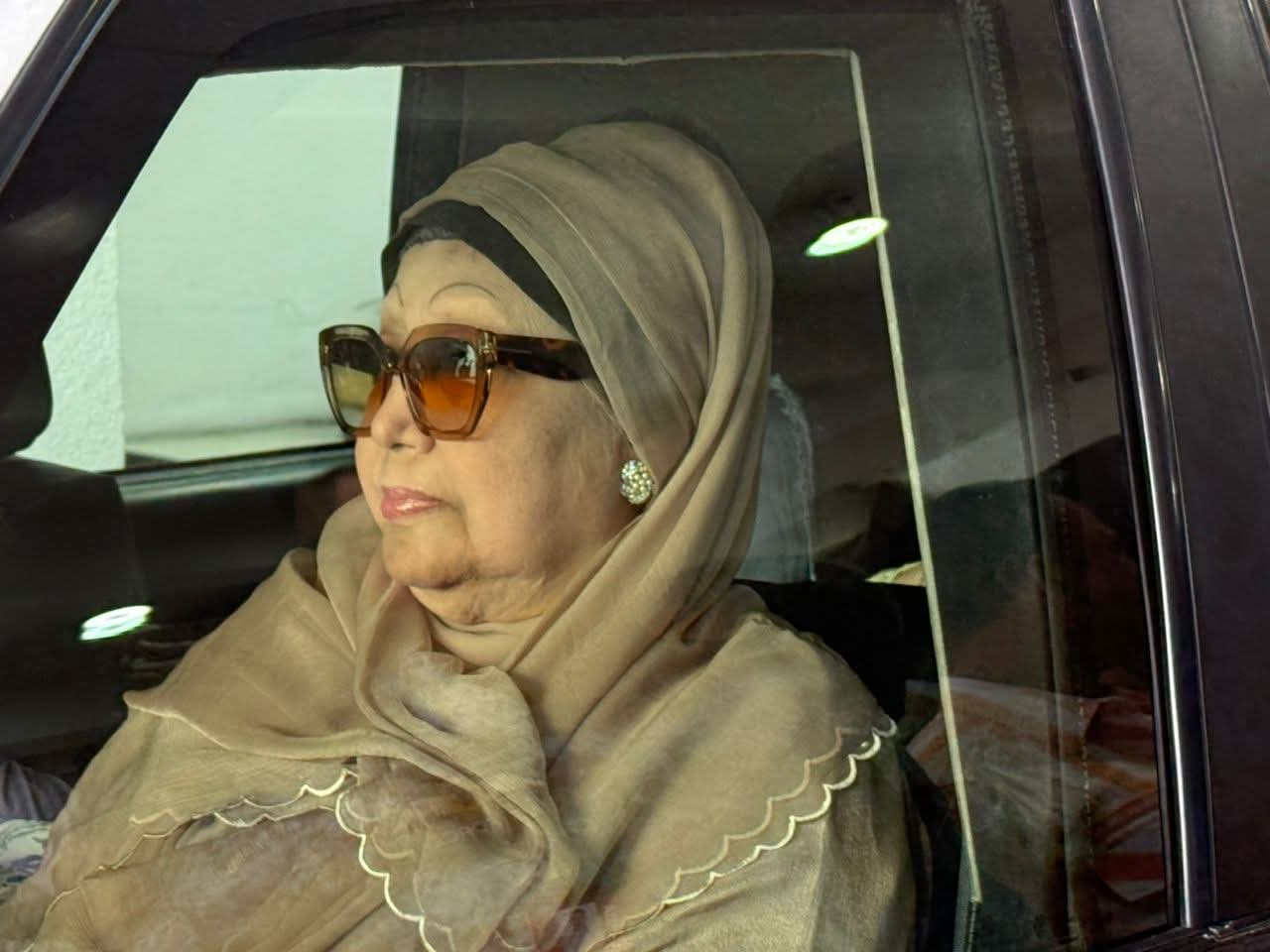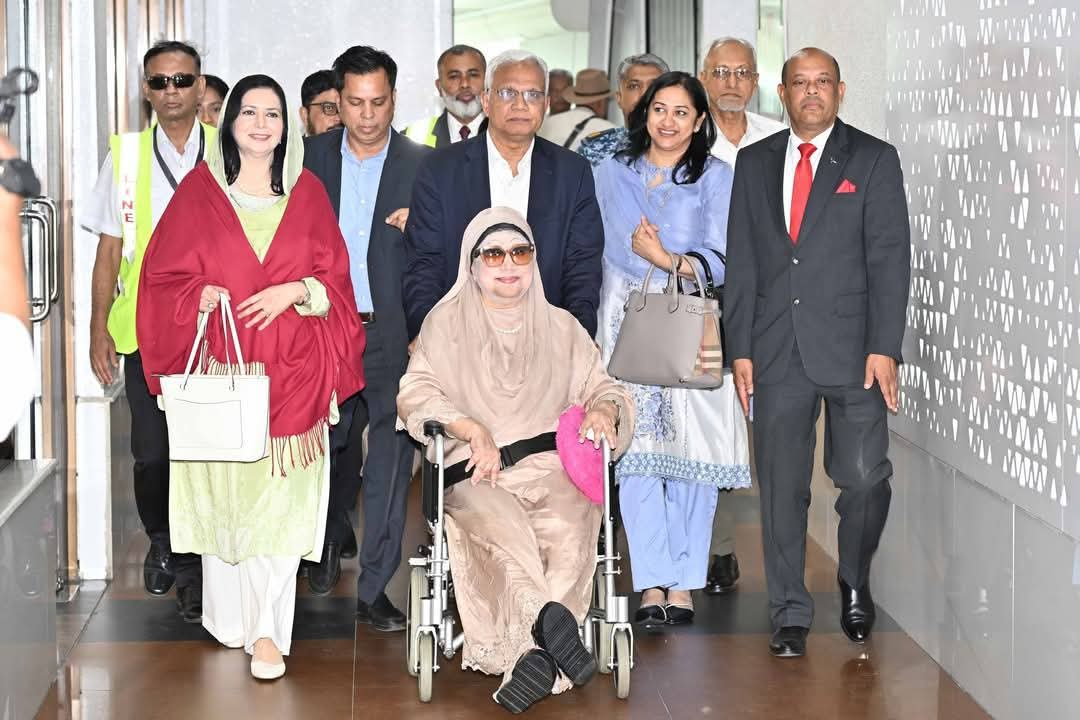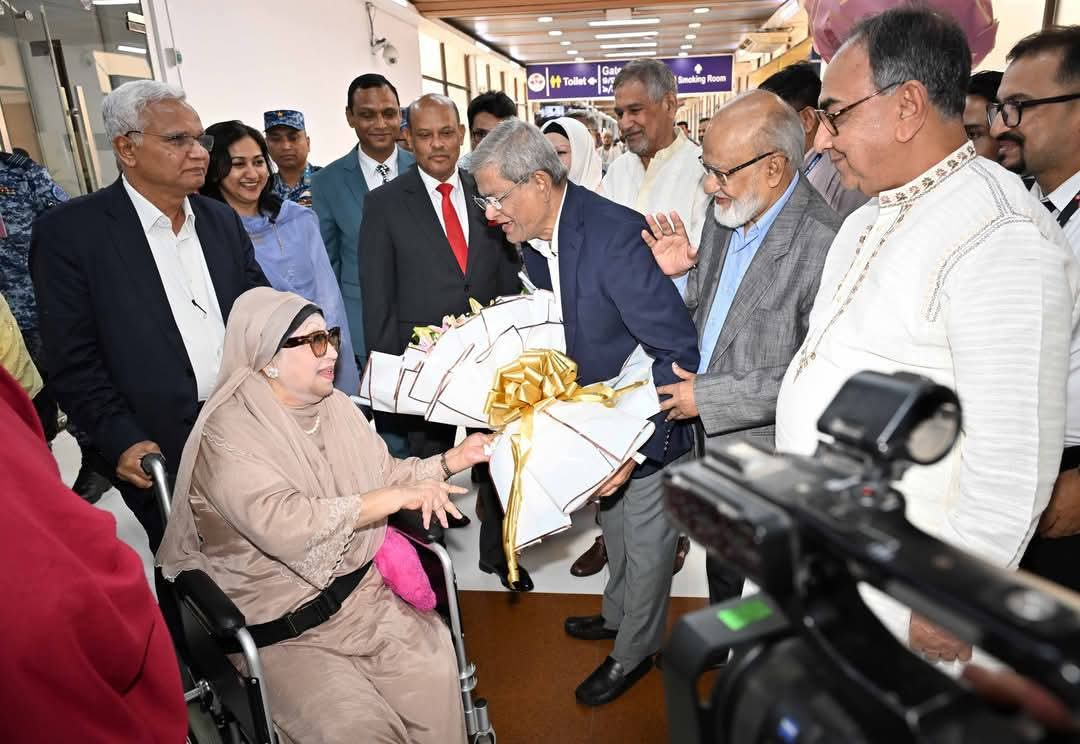After four months of treatment in London, Begum Khaleda Zia, one of the most iconic politicians of the country, returned home Tuesday morning, igniting a wave of emotion across the politically charged nation.
With her return, the long-dormant hopes for democratic transition surged back into the national spotlight.
Touching down at Hazrat Shahjalal International Airport at 10:40am aboard a Qatari royal air ambulance, the 79-year-old BNP Chairperson was received by party Secretary General Mirza Fakhrul Islam Alamgir and a sea of jubilant supporters who had thronged the airport since dawn.
With national and party flags in hands, slogans on their lips, and tears in some eyes, they chanted that “democracy itself had just landed”.
Khaleda was flanked by her daughters-in-law—Zubaida Rahman, wife of Acting BNP Chairman Tarique Rahman, and Sharmila Rahman, widow of Arafat Rahman Koko.
Tarique, who was forced to leave the country in 2008 and has remained in political exile in London since then, personally drove her and Zubaida to Heathrow and bid them farewell—underscoring the family’s ongoing political choreography.
From the airport to her Gulshan residence, Firoza, the journey was nothing short of a procession.

Streets from Uttara to Banani to Gulshan-2 turned into a ribbon of roaring humanity, fluttering flags, and banners bearing images of Ziaur Rahman, Khaleda Zia and Tarique Rahman. The motorcade crawled through emotionally charged crowds.
“I never thought I’d witness this day,” said Sajjad Hossain, a Jubo Dal activist from Uttara, his eyes still glistening. “It’s as if the heartbeat of democracy is back.”
“Khaleda Zia is not just a leader—she’s the last symbol of resistance,” said Rokeya Akhtar from the BNP women’s front. “Even in silence, her presence speaks volumes. We draw strength from her survival.”
Mirza Fakhrul Islam Alamgir struck a chord with the broader political message.
“In these fragile times, Khaleda Zia’s return is more than personal—it’s political. Her presence is pivotal to reviving democracy. We believe her return will clear the path for a fair and inclusive national dialogue.”
The moment was heavy with subtext.
Khaleda had been imprisoned on February 8, 2018 on corruption charges widely criticised as politically engineered. Though conditionally released during the pandemic, she was barred from travelling abroad—until Sheikh Hasina’s government crumbled under the August 5 uprising.
Only then did the path open for her to seek treatment—and eventually return in good health.

“She went abroad after years of suffering under authoritarian repression. Now her return marks the beginning of a new chapter,” Fakhrul told journalists.
Security around her residence reached unprecedented levels well before she arrived at Firoza at 1:26pm, the residence she moved into after being evicted from her cantonment house, which had been allocated to the Zia family following the assassination of her husband, President Ziaur Rahman, on May 30, 1981.
Intelligence agencies have established 24/7 surveillance at Firoza.
RAB, police, and military personnel guard the perimeter. Medical units remain on standby. BNP’s own volunteers have formed human buffers around the gates.
Equally telling is the enhanced security around Zubaida Rahman, who many within the party see as the emerging face of a new generation. She met many of her relatives after a long 17 years of living in exile with her husband Tarique.
As all spotlights are now on Khaleda Zia, BNP leaders hope she will make a decisive leap toward restoring democracy in the country.
While the interim government is eyeing elections between December 2025 and June 2026, the BNP insists on holding polls by the end of this year to sustain the momentum sparked by the popular mass revolt against Sheikh Hasina, who oversaw three widely criticised elections — a one-party vote in 2014, a night-time ballot in 2018, and a staged vote of dummy candidates in 2024.
One thing, however, is clear: Khaleda Zia’s return has altered the political air.
As chants of “Khaleda is back—the transition begins now” echoed through the crowd, even her critics admitted that Bangladesh’s political script had just turned a new page.


